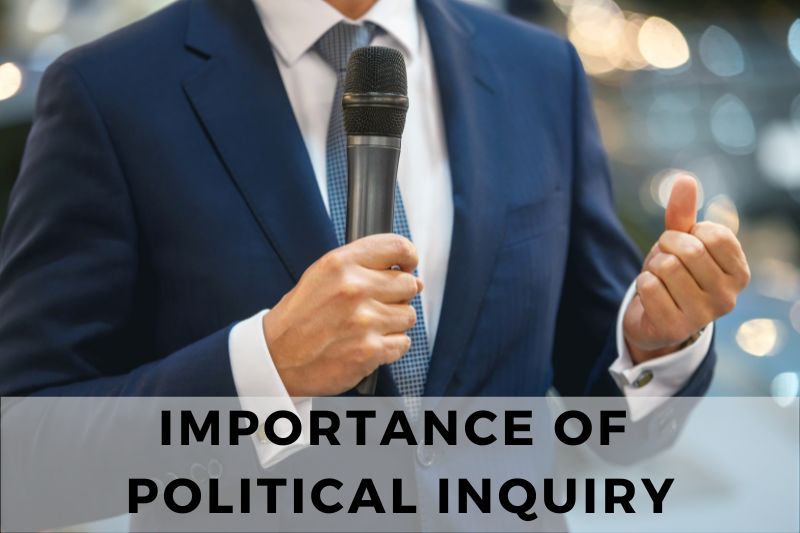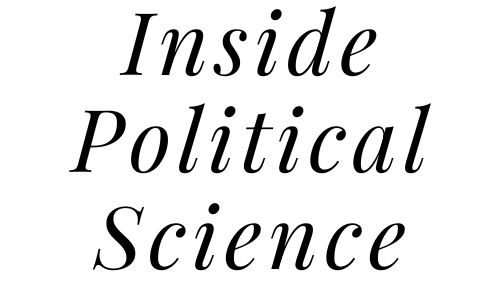
In a thriving democracy, the ability of citizens to engage critically with political issues is essential. Political inquiry serves as the backbone of this engagement, empowering individuals to make informed decisions that shape their societies.
This process of questioning, analyzing, and debating political ideas fosters a deeper understanding of governance, policies, and the political structures that influence daily life. By encouraging informed and active participation, political inquiry ensures that democracy is not only a system of governance but a dynamic practice that reflects the needs and aspirations of the people.
What is Political Inquiry?
Political inquiry is the process of critically examining political systems, ideologies, policies, and events to gain a deeper understanding of how they function and affect society. It involves asking questions, gathering information, analyzing different perspectives, and assessing the implications of political decisions. This inquiry can be carried out by citizens, scholars, journalists, and political leaders, all of whom contribute to the collective understanding of politics.
Political inquiry is not just about gathering facts but also about questioning assumptions, exploring alternative viewpoints, and engaging in dialogue that promotes greater awareness and informed debate. It plays a pivotal role in ensuring that political decisions are grounded in reason, evidence, and a clear understanding of their impact on society.
Key Reasons Why Political Inquiry is Important for a Democracy
Political inquiry plays a pivotal role in sustaining a thriving democracy. By encouraging active participation, critical thinking, and informed decision-making, it ensures that political processes are reflective of the people’s needs and values. Below are the key reasons why political inquiry is essential for the success of a democracy:
#1. Promotes Informed Decision-Making
Political inquiry empowers citizens to make decisions based on knowledge, not assumptions. By critically examining candidates, policies, and political systems, individuals are better equipped to make informed choices that shape the future of their democracy. An informed electorate strengthens democratic governance by ensuring that decisions reflect a clear understanding of their implications.
#2. Enhances Democratic Engagement
Political inquiry fosters a deeper level of engagement by encouraging citizens to actively participate in discussions, debates, and decision-making processes. This engagement extends beyond just voting and includes ongoing involvement in political discourse, which strengthens the democratic fabric of society.
#3. Supports Accountability
When citizens engage in political inquiry, they hold their leaders accountable. By scrutinizing political actions, policies, and governance, individuals can challenge decisions that do not serve the public interest, demanding transparency and responsibility from elected officials.
#4. Aids in Policy Development
Political inquiry informs the development of effective policies. By researching issues, evaluating past policies, and considering different viewpoints, policymakers are better equipped to create solutions that address societal challenges. Informed policymaking leads to more relevant, practical, and beneficial laws and regulations.
#5. Facilitates Social Justice
Through political inquiry, individuals can identify social inequalities and injustices, fostering a collective drive for reform. By questioning existing systems and seeking solutions, political inquiry contributes to building a more just and equitable society, ensuring that the voices of marginalized groups are heard and addressed.
#6. Advances Peace and Stability
In democratic societies, political inquiry can promote peace and stability by encouraging open dialogue, conflict resolution, and cooperative problem-solving. Through informed discussions, citizens can understand diverse viewpoints, reducing polarization and fostering unity, which is crucial for maintaining social harmony.
#7. Fosters Critical Thinking
Political inquiry sharpens critical thinking skills, helping individuals assess complex political issues from various angles. By questioning assumptions, analyzing evidence, and considering alternative perspectives, citizens develop the ability to think critically about the political landscape, leading to more thoughtful and rational decision-making.
#8. Informs Global Collaboration
In our interconnected world, political inquiry is vital for understanding global issues and fostering international cooperation. By examining international relations, global challenges, and foreign policies, political inquiry helps citizens understand the broader context in which their own nation’s decisions are made, promoting collaboration for the common good.
#9. Contributes to Policy Evaluation
Political inquiry is essential for evaluating the effectiveness of policies. By examining their outcomes, identifying unintended consequences, and analyzing public feedback, citizens and policymakers can assess whether policies are achieving their intended goals. This evaluation process is crucial for improving governance and ensuring that policies continue to meet the needs of society.
Conclusion
Political inquiry is the foundation of a thriving democracy. By fostering informed decision-making, enhancing engagement, supporting accountability, and facilitating policy development, it empowers citizens to shape their political landscape in meaningful ways. Beyond the mechanics of voting, political inquiry drives a deeper understanding of the forces that shape governance, from social justice to global collaboration.
As democracy continues to evolve, the importance of political inquiry will only grow, ensuring that democratic systems remain responsive, accountable, and aligned with the values of the people. A democracy that encourages political inquiry is one that remains vibrant, resilient, and capable of addressing the challenges of the future.
